Audacious, brutal, and unrefined, Dev Patel’s directorial debut, “Monkey Man,” is a film that wears its influences unapologetically on its sleeve. Much of the film’s narrative centers around a thematic realignment with one’s roots. So within Patel’s admirably entertaining but undeniably messy vision, a clear through-line is felt between the pulpy, bloodstained martial arts films that have shaped many a burgeoning child’s taste for violence and the filmmaker’s own attempt to pass that influence onto the next generation. It only feels right, then, to take a moment and look at some of those movies to watch if you liked “Monkey Man.”
Throughout the press run for the film, Patel has been very forthright about the specific films and action stars that loomed over his vision of “Monkey Man,” so it would be pointless to merely reiterate those same talking points in essay form. Rather, this list will serve to highlight some of those mentioned films alongside others that may scratch that same primal itch if Patel’s film left you bloodied, beaten, and ultimately satisfied. (Suffice it to say, a reference as surface-level as “John Wick” need not be mentioned here—Patel sealed that envelope when he had one of his characters in the film name-drop it outright).
From Hollywood to Hong Kong and everywhere in between, the film’s forebears and brothers can be found scattered across the globe. Whether the similarities come in genre, story, or visual style, Patel’s film offers no shortage of sturdy branches to trace back to those even sturdier roots. So here are eight movies to watch if you liked “Monkey Man”:
1. The Raid (2011)
One of the films Dev Patel has directly cited as an influence on “Monkey Man” is Gareth Evans’s 2011 runaway Indonesian hit “The Raid.” A contained bloodbath driven by rising action star Iko Uwais, the film revolves around a tactical police squad (and one member in particular) forced to fight their way out of a closed-off apartment complex run by a drug lord after a bust gone wrong.
The first mainstream exposure for Western audiences to the Indonesian martial art of Pencak silat, “The Raid” trades in a level of handheld brutality that’s easy to trace directly to Patel’s own affinity for knuckle-breaking beatdowns. Every punch and kick feels like a kiss from a freight train, and “The Raid” manages to use its restrained tower setting—complete with its obvious use as a sort of “boss levels of increasing difficulty” scheme that Patel also borrows—to up the adrenaline and keep the tension at a near-constant high.
There is a serious argument to be made that “The Raid” and its 2015 sequel constitute the best outright action films of the 2010s. While “Monkey Man” doesn’t necessarily carry that mantle into the next decade, the direct shot of stripped-down combat makes for an undeniable passing of the torch.
2. Police Story (1985)
Tonally speaking, Jackie Chan’s “Police Story” may prove to be a somewhat unusual recommendation for those who enjoyed “Monkey Man.” Not only is Dev Patel’s film decidedly not “pro-authorities,” but Chan’s noticeably more comedic slant to his stunt work may seem an odd choice coming off something so downright feral. But if we wanted to simply recommend a list of movies exactly like “Monkey Man,” we’d just say to watch “Monkey Man” again; all things require balance, and Chan’s comedic take on the “police protecting the court witness” mold—boasting its own star-as-director similarities with Patel—could make for a worthwhile ‘80s tonic after such a brutally modern take on the genre.
Aside from the noted contrast, “Police Story” is marked by Jackie Chan’s famous use of props as a benchmark for his unique fighting style, a point of influence that indeed carries over into “Monkey Man” in key moments. While the chosen tone may initially throw you off, there are more than enough nail-biting fight scenes in Chan’s world to satisfy anyone fresh out of Patel’s.
3. Jawan (2023)
No, this is not a case of “pick the most recent Bollywood film the white writer has seen since we’re talking about an Indian-set action film.” At least… that’s not entirely what this is. True, Patel’s own background may skew somewhat distantly from his ancestral roots—right down to starring in some of the most undeniably British “Indian” films since Jean Renoir made “The River” back in the 1950s—but he has cited Bollywood as a branch on the greater “Monkey Man” tree. Atlee’s latest “Jawan,” then, serves not only as a case of recency bias recommendation but also provides some genuine narrative and stylistic similarities worth noting.
The story of the warden of a women’s prison recruiting his best inmates to help him bring balance to a politically corrupt society, there are certainly narrative parallels to be drawn between “Jawan” and “Monkey Man,” with the latter film’s introduction of the protagonist’s team of transgender warriors who help him on his own quest. Otherwise, the centering of an extremely charismatic leading figure (Hindi cinema icon Shah Rukh Khan) gives “Jawan” another similar boost that would make for a suitable screening if one is in the mood for a more directly local film production that doesn’t skimp out on either the madness or the melodrama.
Also Read: My Name is Khan, And I Know It: Shah Rukh And What Else?
4. The Man with the Iron Fists (2012)
Strictly speaking, “The Man with the Iron Fists” is probably the worst film on this list—in fact, it’s absolutely the worst film on this list. There is, however, a certain charm to Wu-Tang Clan mastermind RZA’s first foray into directing as an ambitious homage to the martial arts films that have directly shaped his own path, which strikes a similar chord with the overall spirit of “Monkey Man.”
The tale of a master blacksmith in a remote feudal Chinese village rampant with rival gangs, “The Man with the Iron Fists” sports a playful tone and equally playful cast that makes up for its vast narrative shortcomings with a decent, if not always successful, reach towards creative visual ideas. (And, as this is an RZA project, the soundtrack, like that of “Monkey Man,” is noteworthy if nothing else.)
Though “Monkey Man” constitutes a far more refined—even in its own shaky form—contender for action debuts from a man more comfortable in front of the camera than behind it, RZA’s film gives action aficionados an interesting change of pace to cross off their lists. At the very least, it might entice you to throw on Liquid Swords for the umpteenth time; is any more motivation needed?
5. A Prayer Before Dawn (2017)
Jean-Stéphane Sauvaire’s film follows Joe Cole as a real-life English boxer incarcerated in Thailand who becomes an unwilling champion of Muay Thai competitions in the face of drugs and deceit. It’s easy enough to see where “Monkey Man,” a film whose protagonist begins as a lowly heel in underground fighting tournaments getting his lights knocked out each night, could be seen as a similar undertaking. Sauvaire’s project, for what it’s worth, is another tonal divergence, focusing a bit more on the half-baked drama and crime world than it does on the action. When the action does come, though, you feel the sweat-drenched impact.
Another film that isn’t so much “great” as it is “thematically fitting,” “A Prayer Before Dawn” finds in its narrative connections enough of a draw for those interested in the sort of action films that have influenced “Monkey Man” that a brief look towards such a tonally bleak project may prove worthwhile.
6. Kaala (2018)
We’ve already discussed one of the more overtly Bollywood-esque Hindi films that could be connected with “Monkey Man.” Now it’s time to take a trip to Mumbai’s Tamil-speaking sector with Pa. Rajinth’s “Kaala.” Based on another icon of Indian cinema (the effortlessly authoritative Rajinikanth), “Kaala” revolves around a champion of the underdogs who aims to protect his local Mumbai slum from the clutches of a mafia leader and the politicians he has in his pockets. By now, the theme of the little guy fighting off corruption seems enough of a recurring pattern in popular Indian cinema that the impact on Patel’s story need not be reiterated.
Rajinth’s use of color and smoke as a mediator of the atmosphere is yet another connective point to “Monkey Man.” The confidence of this stylistic choice, complete with classically unapologetic slow motion, makes for an interesting contrast against Patel’s equally confident but more viscerally handheld approach to his chosen mode of action. Ultimately, there’s something in the swaggering bravado of “Kaala” that makes it a worthy follow-up for first-timers if “Monkey Man” is the sort of movie that winds up sending more Western viewers searching eastward.
7. Drive (2011)
Drenched in neon lighting and relishing in the unrepentant brutality of its every violent moment, a serious argument could be made that “Monkey Man” draws some of its juice from the works of Nicolas Winding Refn. “Drive,” therefore, seems like a useful point of contrast, if only because its extreme bursts of violence come as a wake-up call amid Refn’s constant, lulling vaporwave vibes, fitting for the story of a professional getaway driver and stuntman coerced into a criminal scheme while trying to live his own unadorned life.
What Ryan Gosling does with a hammer or with his own boot in a cramped elevator shaft is more than comparable to what Patel achieves with a switchblade clutched between his teeth, which is to say nothing of the stylishly lit car chase Patel manages to shove into his own film (needless to state that a film called “Drive” will offer some worthy points of interest on that front.)
Further stylistic similarities come in the respective films’ choices in their soundtracks; while Patel has a notably more hip-hop-oriented flavor as opposed to Refn’s synth-pop, the fusion of genres and remixes creates a genre hybrid in each case that makes both films notable exercises in modernized technique. If you liked “Monkey Man,” you’ll probably like “Drive” (though if you liked “Monkey Man,” you’ve probably already seen “Drive”).
8. Oldboy (2003)
Capping off this list of “Monkey Man”-adjacent recommendations, it only seems inevitable that a series of revenge films would culminate in the one to end them all. Park Chan-wook’s seminal “Oldboy” has essentially become the golden standard for revenge-fuelled cinema, so even if its similarities to Dev Patel’s directorial debut started and ended with that plot detail, it would be enough to recommend the South Korean film as a follow-up.
As it stands, though, “Oldboy” is also just as bloody, brutal, and vicious as “Monkey Man” while being ten times as unrepentant and contemplative through the approach of a seasoned master like Park. Any fight scene set in the confines of a cramped building will inevitably be compared to the one-take hallway fight scene in “Oldboy,” just as any revenge saga flashback will undeniably draw recollections of the tragedy that drives this film’s story forward. Through it all, Park Chan-wook proves to be a master craftsman at his peak who would be an essential case study for any revenge/action cinema guru to explore in depth. There’s no doubt that Dev Patel has done just as much himself.
Special Mentions:
Ip Man (2008)
Moving on from Bruce Lee to the lesser-known man who trained him, Wilson Yip’s “Ip Man” series chronicles the tale of its titular Wing Chun master, a humble but deadly combatant constantly thrust into situations where his fists must do more negotiating than his sage demeanor. The first film, focused on Ip Man’s life experience during the Sino-Japanese War, provides a wildly entertaining but appropriately solemn look at the story of the man behind the man, behind every martial artist since.
Led by an incredibly nimble Donnie Yen, “Ip Man” marks a worthy precursor to “Monkey Man” in its attempts to bring equal focus to the action and the greater spiritual purpose behind the fighting. In both cases, the films come up somewhat short on the latter, but the effort is still admirable before you even account for the absolute devastation Yen’s fists of fury will cause to anyone unfortunate enough to find themselves on their receiving end.
Enter the Dragon (1973)
The other primary influence—perhaps the dominant influence—on Patel’s project is the enduring legacy of Bruce Lee. So, while the obvious reference points may not be the most fun to dig up, it would almost feel disingenuous, not to mention at least one of Lee’s iconic bouts. It may be tempting to go with “The Way of the Dragon” (especially given the similarity of the action stars directing themselves), but Robert Clouse’s Lee vehicle “Enter the Dragon,” as Bruce’s most distinguished effort, seems rife for discussion.
As with “Monkey Man,” “Enter the Dragon” keeps the incentive for its action rather simple, focusing on Lee as a man spying on a crime lord on his remote island under the guise of participating in a martial arts tournament. Already, the connections can be made to Patel’s own framing of his protagonist as an underground fighter, but his equal focus on the body as both a weapon and a center of focus gives him a more solid standing with the works of the master. Beyond that, “Enter the Dragon” offers an enjoyable, distinctly ‘70s peek into precisely the sort of hand-to-hand combat cinema that has gone on to expand its reach over every other forthcoming filmmaker in the genre for years to come.
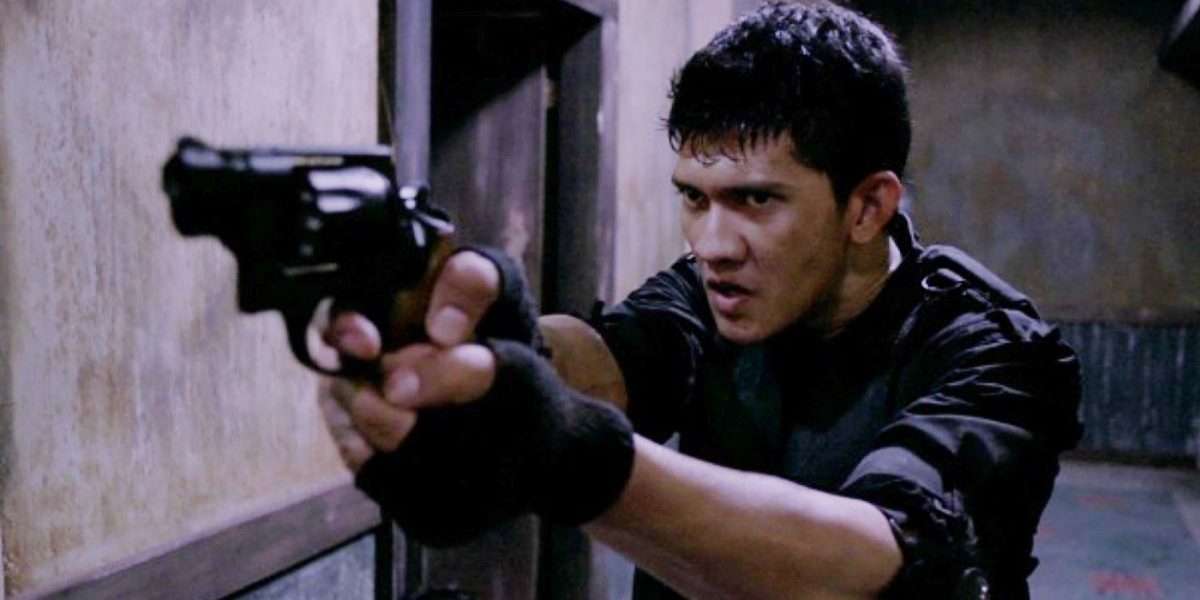
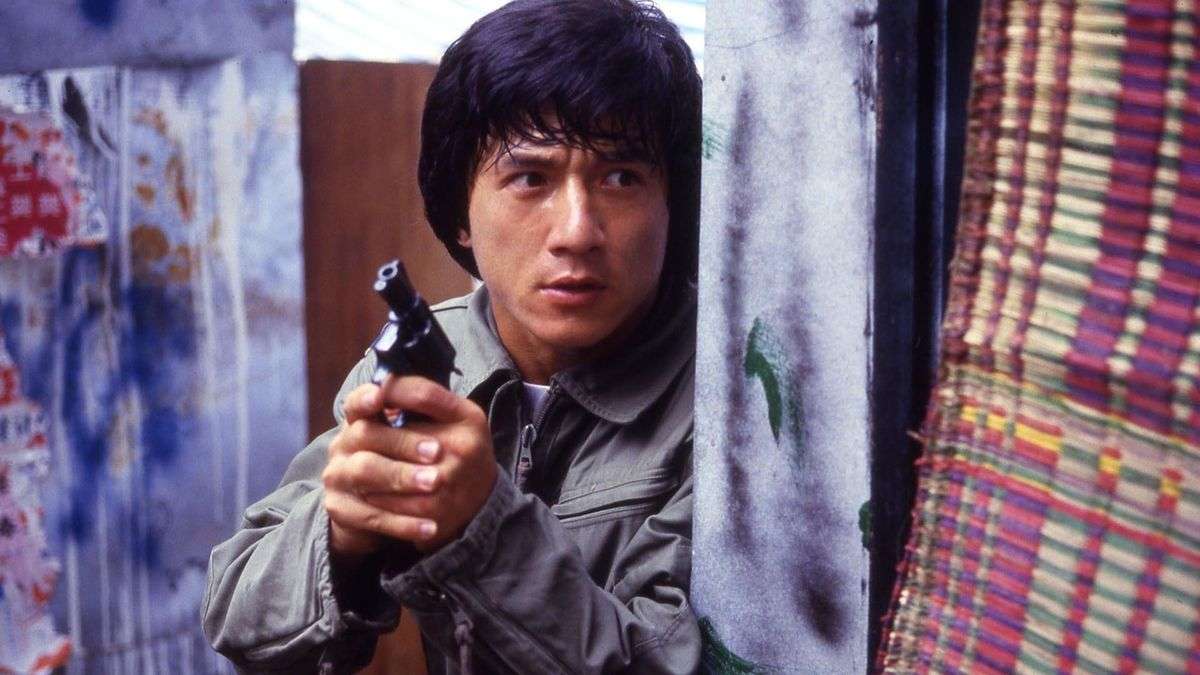
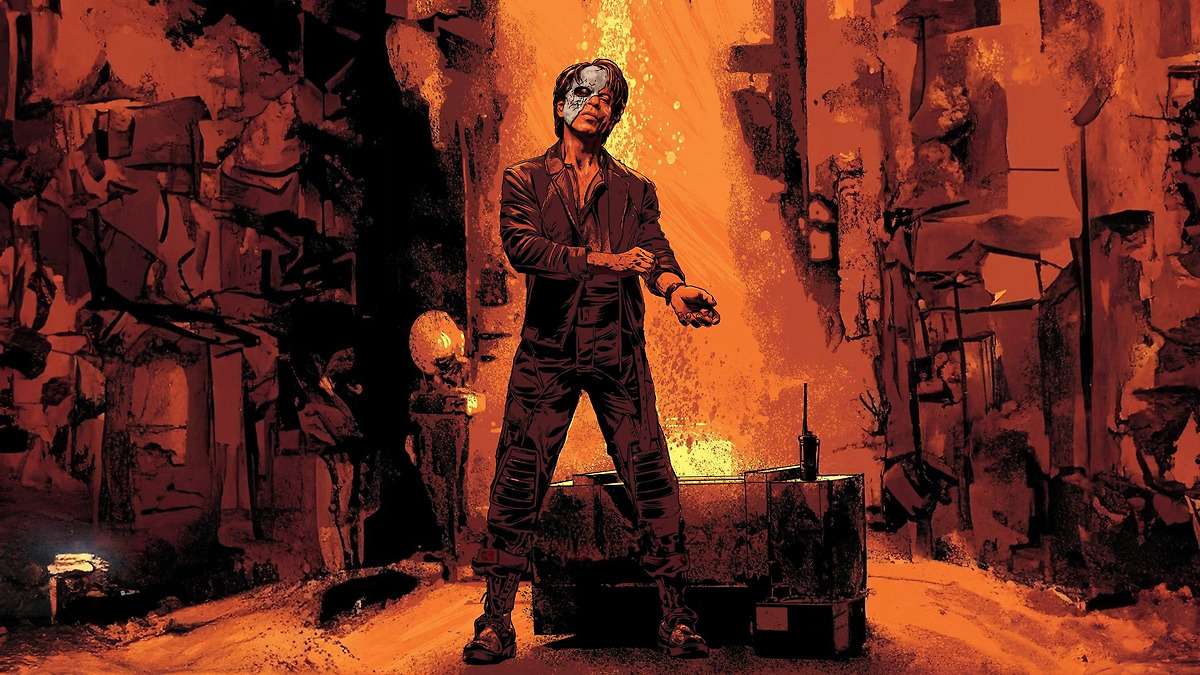
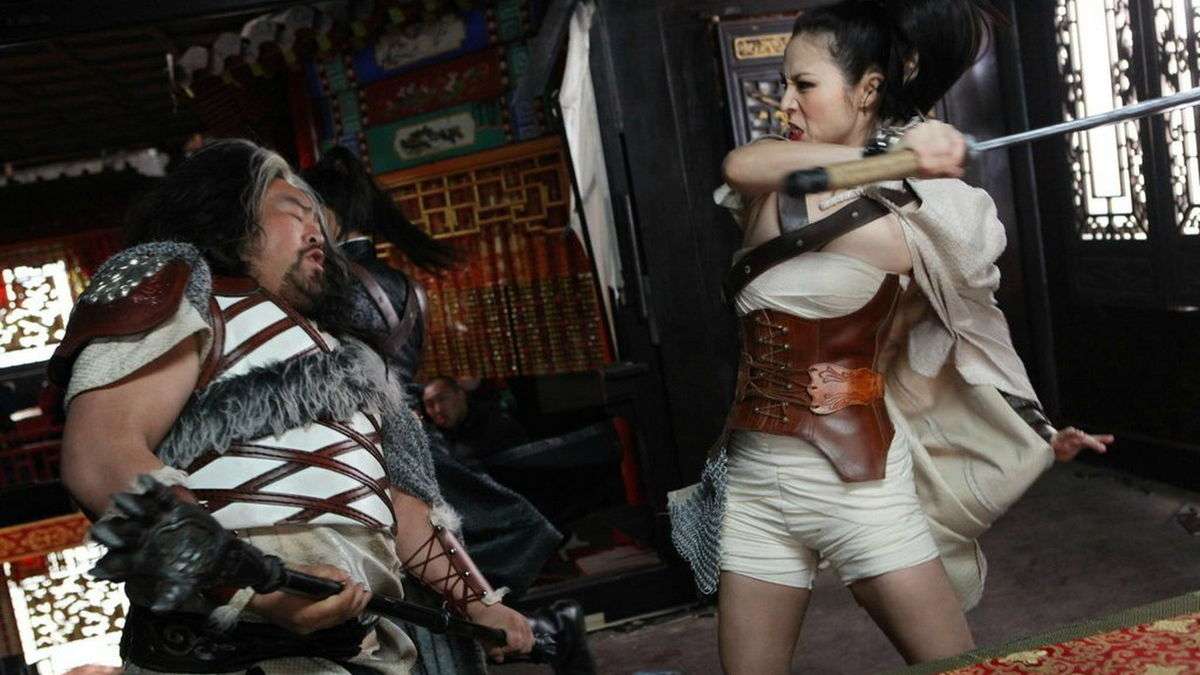
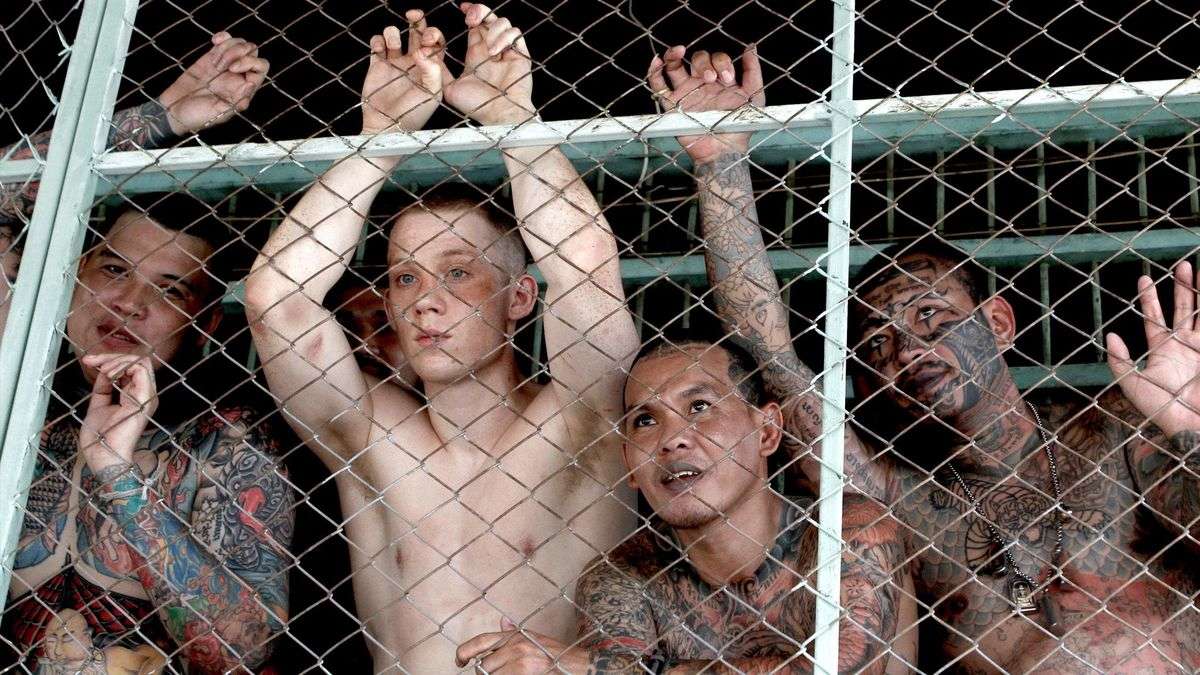
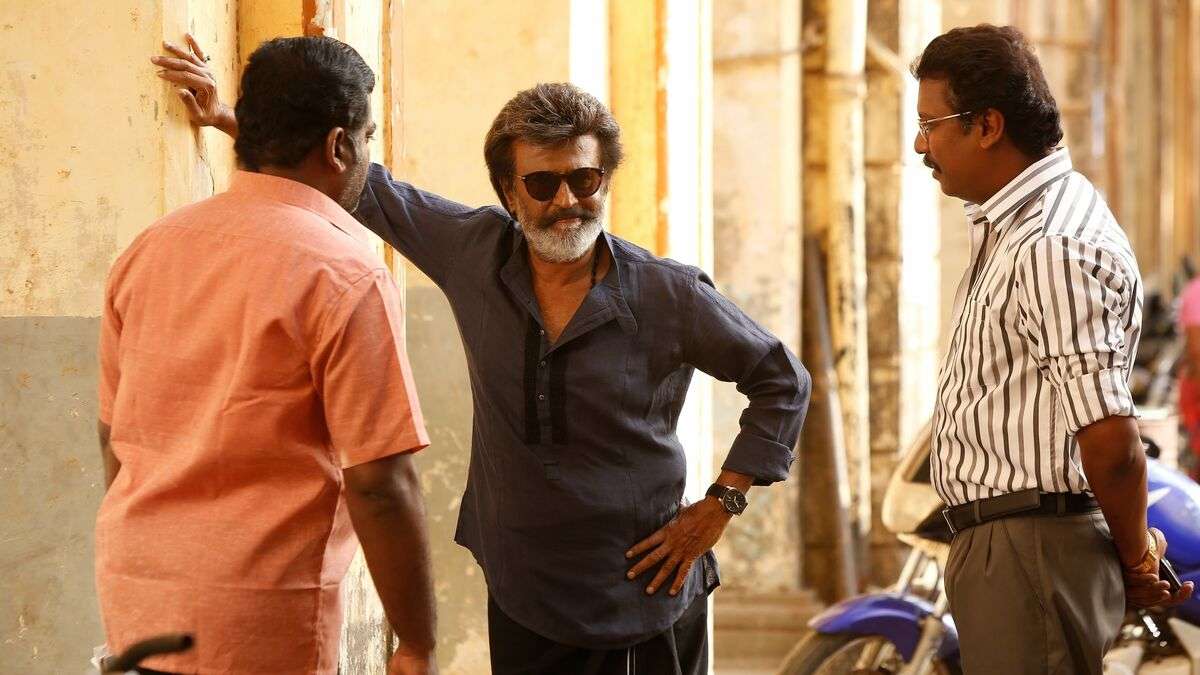
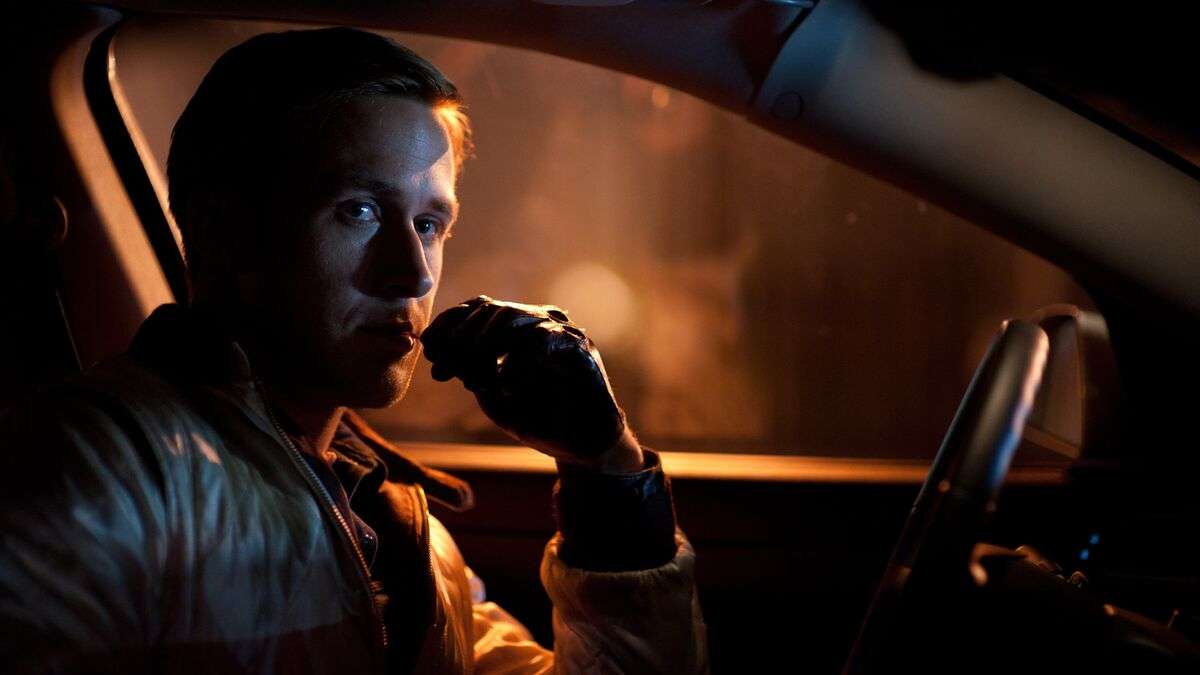
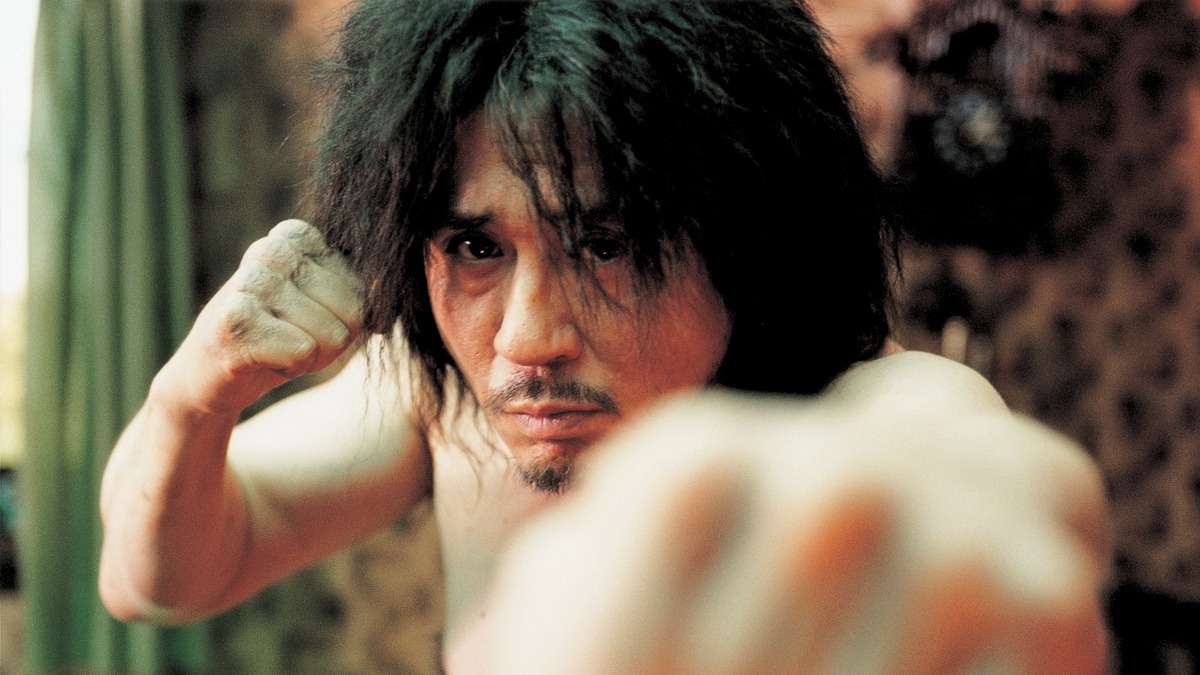
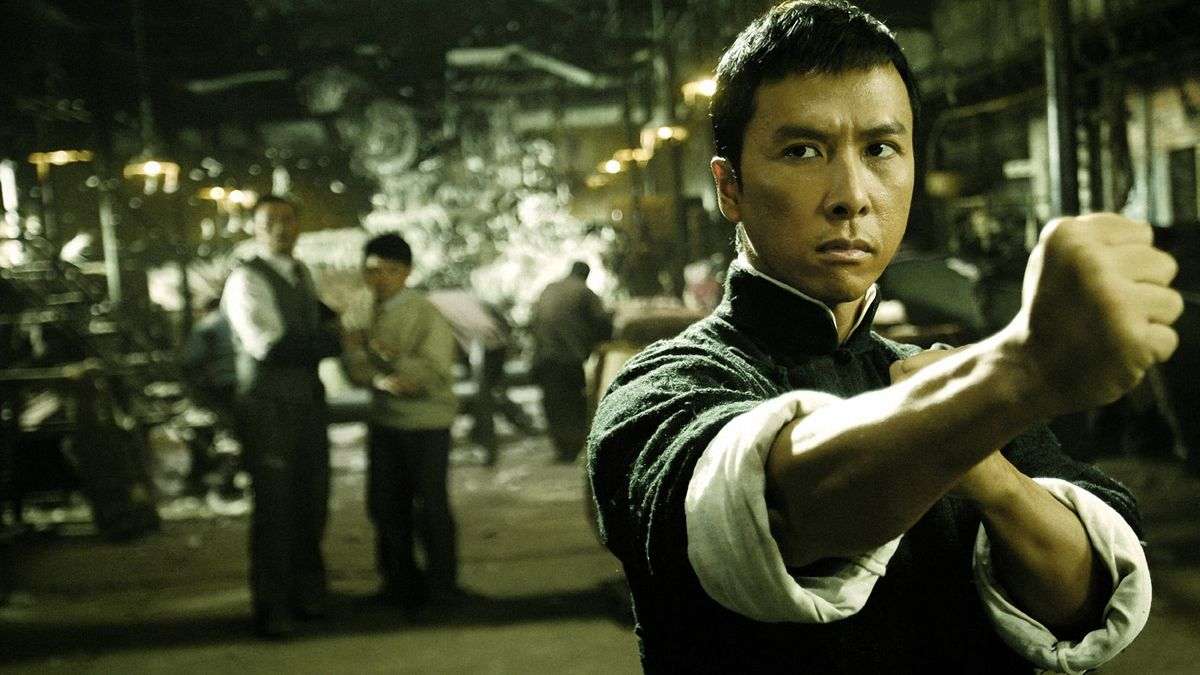
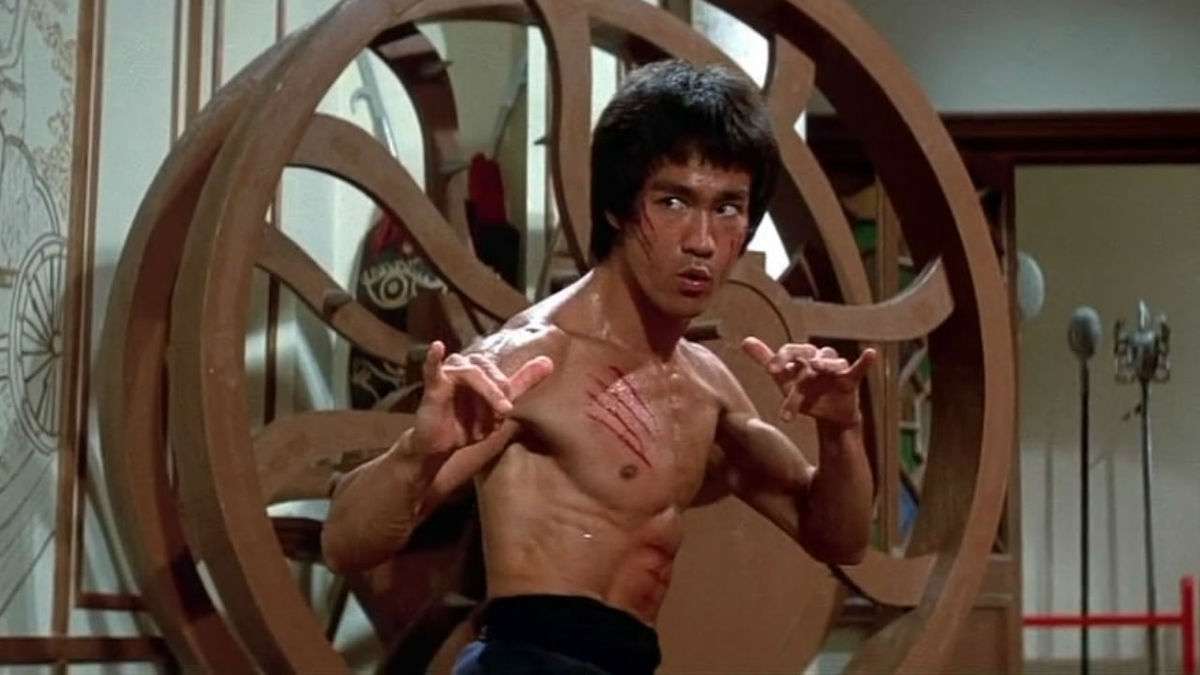


![Long Shot [2019] Review: A Redundant Attempt at creating a Self-Aware Comedy](https://79468c92.delivery.rocketcdn.me/wp-content/uploads/2019/07/Long-Shot-highonfilms-768x432.jpg)
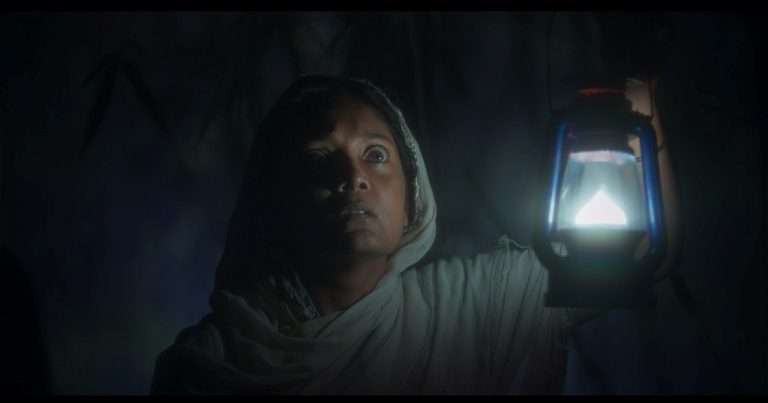
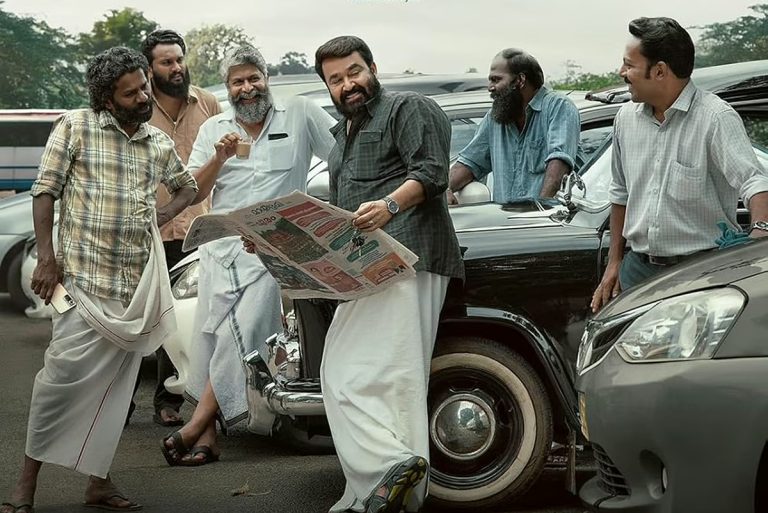

![One and Four [2022]: ‘NYAFF’ Review – Defying the Perception of absolute truth and the fallacy of its adequacy](https://79468c92.delivery.rocketcdn.me/wp-content/uploads/2022/07/ONE-AND-FOUR-Movie-Review-1-768x512.jpeg)
